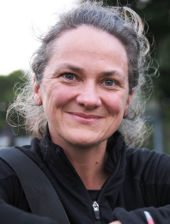What’s it all about?
Mary Astell was a seventeenth-century philosopher who didn’t especially care about what other people thought of her.
In her feminist writings, she put forward a method of thinking to help her fellow women attain a similar detachment from worldly concerns. This was a philosophy about how women could become good and happy people despite their oppressive circumstances, and how they could cultivate a certain generosity of spirit toward others’ failings.
It was also about how—ultimately—they might attain inner peace and tranquillity of mind.
What will we cover?
In this class, we will be introduced to Astell’s ethical programme, and especially her Cartesian and neoplatonist method for attaining the true and the good. This is a method whereby women can learn to regulate their “passions” or emotions such as love, sadness, hate, and desire.
According to Astell, the regulation of the passions is the key to our well being and happiness. This class will explore her psycho-therapeutic techniques for remedying the disordering effects of our emotional lives. It is open to both men and women.
Who will be teaching?
 Dr Jacqueline Broad is an Associate Professor of Philosophy at Monash University and author of The Philosophy of Mary Astell: An Early Modern Theory of Virtue (Oxford, 2015). She has been reading and writing since she was six years old, and unlike Astell, she does care about what other people think.
Dr Jacqueline Broad is an Associate Professor of Philosophy at Monash University and author of The Philosophy of Mary Astell: An Early Modern Theory of Virtue (Oxford, 2015). She has been reading and writing since she was six years old, and unlike Astell, she does care about what other people think.